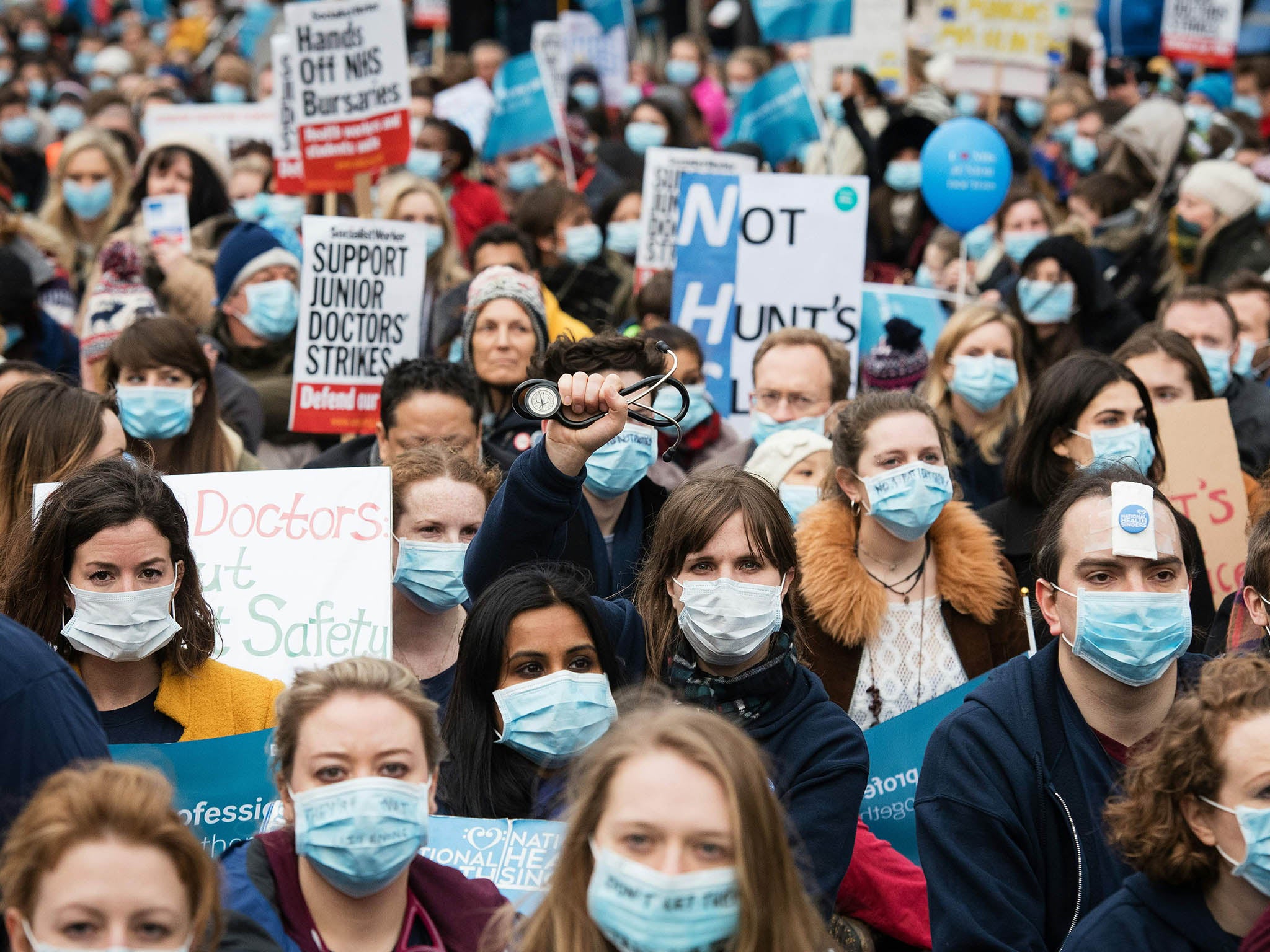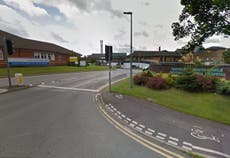Surprised an A&E is closing because of doctor shortages? We warned you we would leave – now it's happening
When I worked in A&E, I would often not see my own housemates for two weeks at a time, my relationship broke up, and I struggled to see my friends. I was asked to assess a patient in a hospital corridor for major life-threatening surgery. It was unacceptable and undignified

We were reassured by Jeremy Hunt that the impending exodus of junior doctors was scaremongering. We were reassured that people won't vote with their feet – despite the high number of disgruntled medics requesting their Certificate of Good Standing, the document that allows them to leave the UK and practice elsewhere, during the junior doctors’ dispute.
Incentives were put forward for doctors to train in under filled specialities by the last Tory government – but this hasn't worked. Hunt has essentially pushed medics out of NHS training and into a tin can in the sky towards a sunnier climate in the Southern Hemisphere.
The news that an NHS hospital is being forced to shut down its A&E department due to staff shortages didn’t come as a surprise to me. This is not the first department to struggle and it won't be the last. Nationally, we do not have enough emergency medicine trainees. But working in emergency medicine is a truly rewarding speciality – so why the struggle?
For anyone curious about the answer to that question, I would ask you to look at any Senior House Officer rota from any hospital. Working 10 days in a row, the constant rotation of day shifts to night shifts, and the gruelling pressure of trying to manage an overflowing department can get to a person pretty fast. Emergency departments are used to judge a whole hospital’s performance, resulting in a department ruled by protocols and rules. The four-hour rule which aims for patients to have a decision about admission or discharge within this time frame is lovely in principle. However, when you’re picking a patient up after three hours and 55 minutes, and are expected to make a decision before they breach the time limit, it becomes a stressful and unsafe situation.
Many of the problems of A&E aren't due to poorly-run emergency departments – quite simply, when there are no beds in the hospital, there is no flow in A&E, so nowhere to assess and treat patients who are coming in. I have been asked to assess a patient in a hospital corridor for major life-threatening surgery. This is totally unacceptable and undignified.
A&E departments are struggling because hospitals, primary care, social care and mental health care departments are struggling. A&E is a “place of safety” that has to cope with this massive influx of patients due to cuts from other services. Is it really so hard to imagine why the doctors in these units are stressed?
When I worked in A&E, I would often not see my own housemates for two weeks at a time, my relationship broke up, and I struggled to see my friends. This may sound like an over-privileged sob story, but after finishing my six month stint in A&E, I was burnt out. Dealing with a high intensity environment requires good social support, something which is difficult to maintain when working a stretch of anti-social shifts. Discussing a career in emergency medicine with colleagues from other acute specialities, there is a resounding answer: A&E is essential experience for any medic, but the lifestyle of it isn't sustainable.
The new contract has done nothing to allay our concerns about unsocial rotas. Stretching breaking services more thinly will only result in poorer overall care. Jeremy Hunt has included a “golden handshake” for doctors training in emergency medicine, but this promise hasn't aided recruitment. The number of medics applying for training last year went down, leaving many trusts dependent on locum agencies. We are fighting a government that doesn’t have our patients’ best interests at heart.
So where are all those junior doctors, the ones who already trained in the UK and who you saw march en masse against the imposition of dangerous new contracts? Well, if you were to scroll through my Facebook, you would see many of my peers enjoying their new lives in Australia and New Zealand, working in emergency departments there. From 2013 to 2015 there was a 7.9 per cent drop in Foundation Year Two doctors applying for hospital speciality training (the point in your career you typically would apply). In other words, junior doctors reached a certain point in their careers – and then disappeared.
Not all have gone to sunnier climates – some have left medicine; some have left training but still work in the NHS. We’re currently holding up, but the cracks now will become the crevasses of the future. The UK has an ageing population with increased healthcare needs. Trainees today will be tomorrow's consultants. And the consultant contract is currently being renegotiated, which again will discourage medics from working in the NHS.
The government needs to take its head out of the sand about the current training crisis to help our NHS and guarantee its existence in the future. I can assure you that Jeremy Hunt did a sterling job of catalysing a recruitment and retaining crisis among doctors. If he doesn’t start sorting out the problems he created, their consequences will be the final nail in the coffin of a national health service we once held so dear.


Join our commenting forum
Join thought-provoking conversations, follow other Independent readers and see their replies